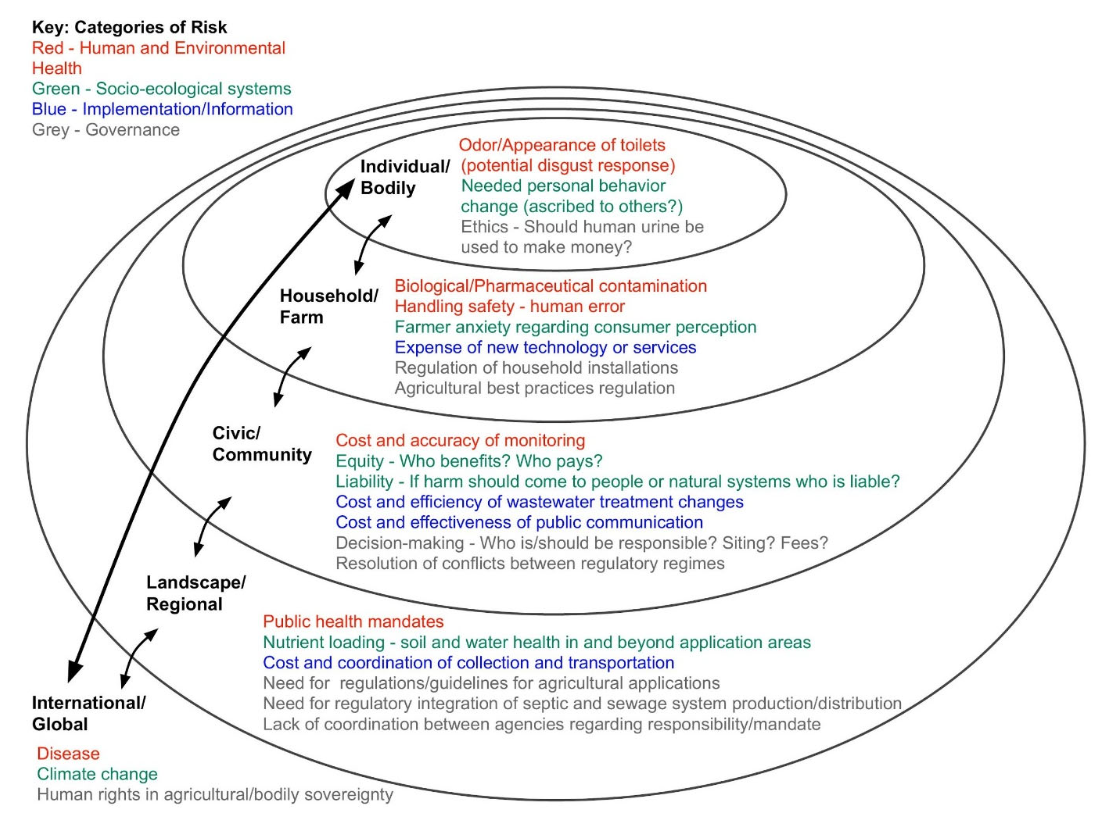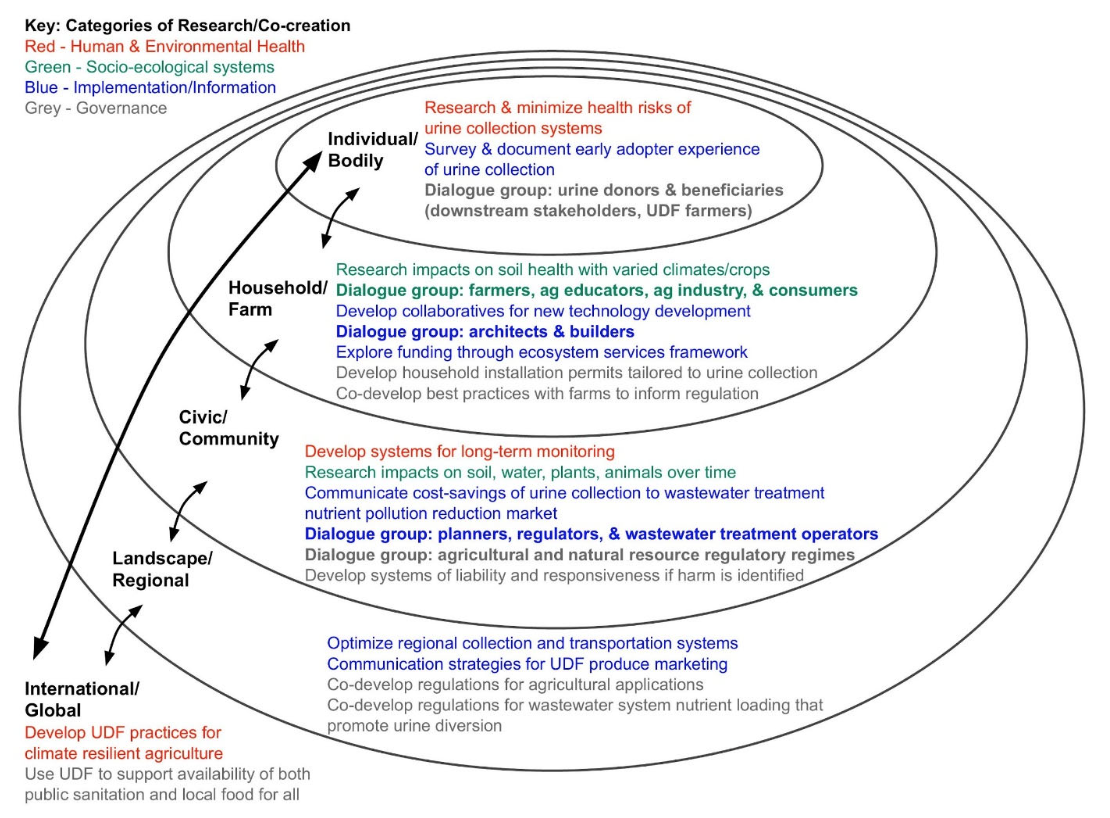Back to all articles
New Social Research Publication!

Distrust, Not Disgust—Fertilizers from Human Urine Implicate New Responsibilities to the Hopes and Anxieties of Communities
JAFSCD article by Tatiana Schreiber, Shaina Opperman, Rebecca Hardin, Julia Cavicchi, Audrey Pallmeyer, Kim Nace, Nancy Love
Urine reclamation has the potential to achieve wide ranging sustainability goals, including completion of the nutrient cycle that spans food and wastewater systems. Through a sense of collective responsibility, communities have already begun to implement closed-loop alternatives to mainstream agriculture and waste management practices. Interwoven with these notions of responsibility, however, are concerns about both who can be trusted to address shared challenges with integrity, and how well risks are recognized and communicated. For urine reclamation systems to be co-created with communities in ways that support their visions of responsible action for sustainability, understanding these perceptions of risks and distrust will be crucial.
In this study, we partnered with researchers at the University of Michigan to engage with the perspectives of diverse stakeholders—including the general public, farmers, wastewater treatment specialists, environmental advocates, agribusiness leaders, legislators, agricultural educators, city planners and more—to deepen our understanding of pathways toward urine reclamation among communities in New England and the Upper Midwest.
Read the full, open-access paper here: Nested risks and responsibilities: Perspectives on fertilizer from human urine in two U.S. regions
KEY FINDINGS
- Participants often ascribed potential disgust or discomfort to others, but they themselves were often open to considering the use of human urine as a fertilizer.
- Holistic thinking connecting the wellbeing of ecosystems with that of local economies emerged as an overarching motivation for interest in urine diversion and reuse.
- Respondents shared a sense of responsibility for addressing environmental issues, but they also expressed uncertainties about the safety of urine recycling that were embedded in larger concerns regarding widespread food and water contamination, transparency in decision-making and risk communication, and the potential for human exploitation. The concerns participants expressed can be conceptualized as nested risks and responsibilities.
RECOMMENDATIONS FOR POLICY, PRACTICE, AND RESEARCH
- The nested risks revealed by our research indicate priorities for the co-creation of action research going forward in areas of human and environmental health; agroecological systems; practical implementation; education and communication strategies; and policy and regulation.
- A dialogical process for designing urine reclamation systems must be developed, adapted, and assessed over time to enable knowledge sharing between policymakers, farmers, and consumers and ensure communities have ownership in this innovation.



